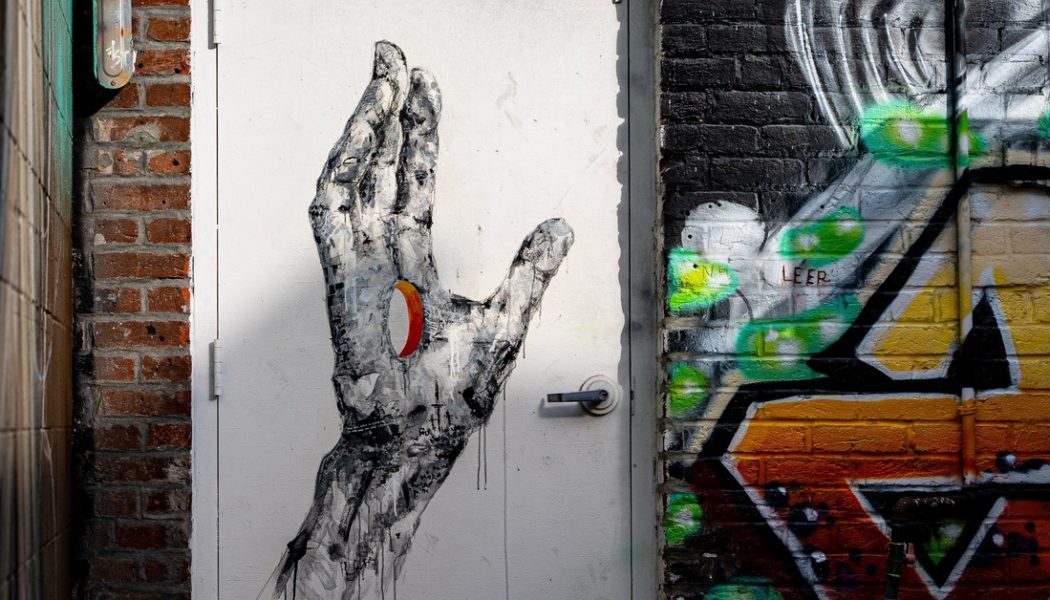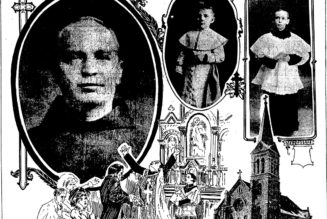
When another person self-describes as “raised Catholic”, what assumptions do you make about them? Many would assume they go to Mass. Others would assume they know Catholic teaching or that they pray regularly. It could mean the person is living like the next St. Teresa of Calcutta. Yet, it could also mean they have never stepped foot inside a Catholic church and that their grandmother was a Catholic and because of her the family has always called themselves “Catholic”. In other words, the label doesn’t tell us anything except that the person self-identifies as “raised Catholic”. Everything else will need to be figured out.
To further illustrate the issue, what if I told you I am a cradle Catholic, who was raised in a very faithful Catholic family, went to a Catholic school, and now I work in Catholic ministry, what would you assume about my life? Would you know, Jesus hasn’t always been a part of my life? Would you know that I had years of rejecting God and living a sinful lifestyle? Not unless you know my story.
This is why we have to be very careful, when evangelizing (or accompanying someone in any stage), that we don’t make assumptions about the other person. It is better to stop filling in the blank spaces for others and instead, get to know them. As the phrase goes, “never accept a label in place of a story“. It is a very wise saying, because too often we accept the label, because it is easier. We don’t have to invest in a relationship or listening if we just accept the label at face-value.
Bad assumptions we may make include:
- Since a Catholic is very “involved” in our parish, they are an intentional disciple.
This might be one of the most dangerous of all assumptions, because it means that we think they have already had an initial encounter with Jesus which led to conversion. So, we assume they are good with Jesus and therefore we don’t evangelize them. This is a terrible way to operate. What if they are just waiting for someone to help them come to know Jesus? What if they are open to the Gospel, but never hear it, because we assume they don’t need to? What if they have mistaken activity for faith in Jesus? If they are not a disciple and we assume they are, it completely destroys evangelization, because most Catholics would not evangelize them at all, but just accept that their outward actions tell us the entire story of their heart!
Remember…Judas was “involved”. - Priests, bishops, religious, and lay Catholics in leadership positions know how to effectively evangelize and guide disciples into full maturity as Catholic missionary disciples.
The truth is, this is more often not true. I work full-time, training leaders on how to work on parish renewal, but I can’t start with the entire parish, I have to start with the leadership. In my work, I have learned that many of the best Catholic leaders still lack some knowledge and/or skills that they need to be great evangelists or pastoral leaders. Skills such as how to effectively proclaim the kerygma and invite a response, how and when to give your testimony, how to have deep conversations and assess where someone is on their spiritual journey, how to bring someone to conversion, etc.
If we assume leaders know how to do these things, we won’t help them grow as disciple-makers and evangelists. - An active parish means that disciples are being made.
This may or may not be true. There are thousands of very active parishes. They put on a lot of events, classes, and programs. They have a lot of people that go to Mass and are “involved”. But, just like we shouldn’t take it for granted that an active individual has been converted to Jesus, we shouldn’t assume that a busy parish is evangelizing others. As Jesus said, “you shall know a tree by its fruit” (Matt 7:16). The fruit of evangelization is found in conversion, lives that are transformed, baptisms & confirmations of adults, etc. Are we having abundant fruit via conversion or have we settled for a lot of busyness?
Instead of making false assumptions, what if we started to operate differently?
What if we stopped filling in the blanks of the stories of those around us and really started to ask deep questions and listen attentively?
What if the only assumption we made was that we can’t assume anything about someone?
What if we invested deeply in others and started to really learn where they are, what they need, and how we might assist them in growing closer to God?
Think of how you might operate differently, even amongst other staff members or highly-involved volunteers at your parish. This lack of assumption could lead to a healthier culture, where we all started to look for opportunities to minister to one another. We would start to truly hear what others are saying and respond appropriately, to meet the needs of others, rather than just filling in the blank spaces ourselves.
The real challenge is to do this intentionally. So, start to ask yourself some of these questions:
- Who have I made assumptions about?
- What labels have I accepted in place of stories?
- Who do I need to get to know better, in order to serve them as they need to be served?
- What would we do differently if we stopped making these assumptions (think in terms of evangelization opportunities, even for leaders)?
- What do I need to pray about and who do I need to pray for, now that I have identified these things?
- What things would we stop doing if we started evangelizing and growing mature disciples more intentionally?
As St. Rose of Lima said:
“Know that the greatest service that man can offer to God is to help convert souls.”
This service, if done well, should be without false assumptions, which can lead to us not evangelizing others in the ways they need us to.
Join Our Telegram Group : Salvation & Prosperity









